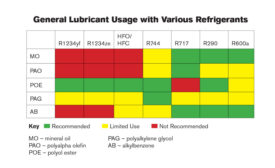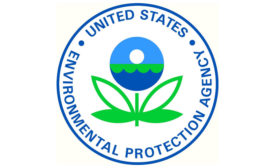Home » alternative refrigerants
Articles Tagged with ''alternative refrigerants''
Company’s position includes approvals for HC and HFO refrigerants
Read More
Why R-32 May Be the Refrigerant of the Future
All options have pros and cons, but R-32 makes a good case for itself
Read More
ASHRAE Designates Bluon Energy TdX 20 Refrigerant as R-458A
Approved by ASHRAE and ANSI
October 6, 2016
First UK Supermarket R-449A Installation Shows Energy Saving for Waitrose
Chemours Opteon XP40 provides savings for Devon store
Read More
ComStar Introduces R-22 Replacement Refrigerant for Ice Rink Systems
RS-45 said to be a true drop-in replacement for R-22
September 7, 2016
EPA Authorizes Bluon Energy TdX 20 Refrigerant under SNAP
Authorized for commercial HVAC, industrial process and retail food refrigeration uses
July 11, 2016
Lubrication Tips for Next-gen Refrigerants
Low-GWP refrigerant transitions cause uncertainty in the land of lubricants
Read More
R-22 Replacement Refrigerant Obtains ASHRAE Classification of R-458A
TdX 20 is a multi-phase, zeotrope refrigerant blend
June 13, 2016
AHRI, ASHRAE, DOE Partner to Fund Flammable Refrigerant Research
Will facilitate and accelerate the safe use of these refrigerants
June 9, 2016
EPA Reiterates Fire, Injury Warnings of Unapproved Refrigerants
Refrigerants with ‘22a’ or ‘R-22a’ in the name contain highly flammable hydrocarbons
May 30, 2016
Copyright ©2024. All Rights Reserved BNP Media.
Design, CMS, Hosting & Web Development :: ePublishing





